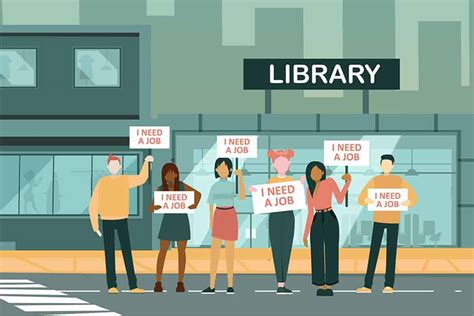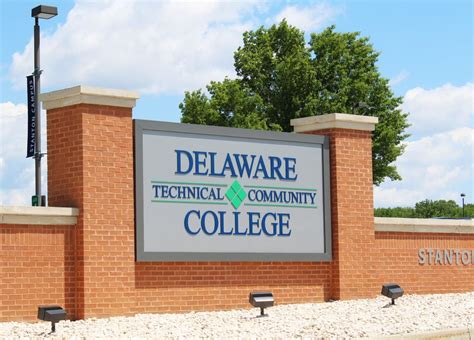Library Careers

The field of library and information science offers a diverse range of career paths, each with its own unique challenges and rewards. From managing vast collections of books and resources to providing specialized research assistance and community outreach, library professionals play a vital role in fostering knowledge, promoting literacy, and supporting lifelong learning. This article explores the various career opportunities within the library industry, shedding light on the skills, qualifications, and roles that make these institutions thrive.
Librarians: Guardians of Knowledge and Community Builders

At the heart of every successful library stands the librarian, a versatile professional with a deep understanding of information management, user needs, and community engagement. Librarians are responsible for curating and organizing library collections, ensuring they are accessible, well-maintained, and relevant to the community they serve. Beyond collection management, librarians play a crucial role in providing reference and research assistance, guiding patrons in their information quests, and connecting them with the resources they need.
The work of librarians extends beyond the stacks. They are often the face of the library, interacting with patrons, conducting community outreach programs, and organizing events to promote literacy and engagement. In this role, librarians must possess excellent communication skills, a strong sense of community, and the ability to adapt to the diverse needs and interests of their patrons.
Specializations in Librarianship
The field of librarianship offers a range of specializations, allowing professionals to focus on specific areas of interest and expertise. Here are a few specializations within librarianship:
- Academic Librarians: These professionals work in college and university libraries, supporting the research and learning needs of students and faculty. They often specialize in specific subject areas, offering in-depth knowledge and resources to support academic pursuits.
- Public Librarians: Public librarians serve the general community, offering a wide range of resources and services to patrons of all ages and backgrounds. They play a vital role in promoting literacy, providing access to technology, and organizing community events and programs.
- School Librarians: School librarians work in elementary, middle, and high schools, supporting students' educational journeys. They curate age-appropriate collections, teach information literacy skills, and collaborate with teachers to enhance the learning experience.
- Special Librarians: Special librarians work in specialized settings such as corporate libraries, law firms, or medical institutions. They possess expertise in specific fields, providing tailored resources and services to meet the unique needs of their organizations.
Library Technicians: Behind-the-Scenes Support

Library technicians, also known as library assistants or library staff, provide crucial support to librarians and play a vital role in the day-to-day operations of libraries. They are responsible for a range of tasks, ensuring the smooth functioning of the library and its services.
Library technicians often assist with the circulation of materials, helping patrons check out and return books, DVDs, and other resources. They may also handle interlibrary loans, ensuring that patrons have access to a wider range of materials beyond the library's collection. Additionally, library technicians assist with shelving books, maintaining the physical organization of the library, and ensuring that resources are easily accessible to patrons.
Technical Skills and Innovation
In today’s digital age, library technicians must possess a range of technical skills to support the library’s digital infrastructure. They may assist with the maintenance and updating of library websites, online catalogs, and digital resource platforms. This includes troubleshooting technical issues, ensuring that patrons can access digital resources seamlessly, and providing basic IT support to both patrons and staff.
Library technicians also play a crucial role in implementing and maintaining library management systems, which track and organize the library's collection, user data, and circulation records. They ensure that these systems are up-to-date, accurate, and user-friendly, facilitating efficient library operations.
Library Managers and Administrators: Leading with Vision
Library managers and administrators are the leaders and visionaries who oversee the strategic planning, budget management, and overall direction of libraries. They are responsible for ensuring that the library meets its goals, serves the community effectively, and adapts to changing needs and trends.
Library managers work closely with librarians, library technicians, and other staff members to create and implement policies, develop programs, and ensure that the library's services align with its mission and values. They often engage in community outreach, building relationships with local organizations, schools, and businesses to promote the library's resources and services.
Budgeting and Resource Allocation
One of the key responsibilities of library managers is budget management. They work within the allocated budget to acquire new resources, update technology, and maintain the physical infrastructure of the library. This involves making strategic decisions about resource allocation, ensuring that funds are distributed effectively to meet the needs of the community.
Library managers also oversee the procurement of library materials, working with vendors and suppliers to acquire books, periodicals, digital resources, and other materials that align with the library's collection development policy. They ensure that the library's collection remains diverse, up-to-date, and relevant to its patrons.
Information Specialists: Curating and Delivering Knowledge
Information specialists, also known as information professionals or information analysts, play a crucial role in managing and delivering information within libraries. They possess a deep understanding of information science, research methodologies, and data analysis, allowing them to curate and organize information effectively.
Information specialists often work closely with librarians and researchers, providing specialized assistance in conducting complex research, evaluating information sources, and managing large datasets. They may also be involved in developing information systems, designing databases, and implementing knowledge management strategies to ensure that information is accessible, accurate, and reliable.
Research Support and Information Literacy
A significant aspect of an information specialist’s role is supporting researchers and patrons in their information needs. They provide in-depth research assistance, guiding individuals through the research process, and offering strategies for effective information retrieval. Information specialists also contribute to information literacy initiatives, teaching patrons how to navigate and evaluate information sources critically.
Additionally, information specialists may collaborate with librarians to develop and deliver training programs, workshops, and tutorials on various information-related topics. These initiatives aim to empower patrons and researchers with the skills needed to access, understand, and utilize information effectively.
| Library Career | Key Responsibilities |
|---|---|
| Librarian | Collection management, reference assistance, community engagement, and literacy promotion. |
| Library Technician | Circulation support, shelving, technical assistance, and library system maintenance. |
| Library Manager | Strategic planning, budget management, community outreach, and resource allocation. |
| Information Specialist | Research support, information literacy training, data analysis, and knowledge management. |

What qualifications are required to become a librarian?
+Librarians typically hold a master’s degree in library and information science (MLIS) or a related field. This degree provides a comprehensive understanding of information management, collection development, and user services. Some specializations within librarianship may require additional qualifications or certifications.
How can I become a library technician or assistant?
+Library technicians often have an associate’s degree or a certificate in library technology. Some libraries may require a bachelor’s degree in a related field. On-the-job training is also common, where new technicians learn the ropes under the guidance of experienced staff.
What skills are essential for a career in library management?
+Library managers need strong leadership and management skills, along with a deep understanding of library operations and community needs. They should possess excellent communication and interpersonal skills, as well as the ability to work collaboratively with diverse teams. Strategic thinking and budget management skills are also crucial for this role.
How can I pursue a career as an information specialist in a library setting?
+Information specialists typically hold a master’s degree in library and information science or a related field, with a focus on information science, knowledge management, or data analysis. They should have strong research skills, critical thinking abilities, and expertise in managing and organizing information effectively.
Related Terms:
- library careers remote
- Library careers near me
- library careers no degree
- library "careers"
- Library careers salary
- Brooklyn Public Library careers



